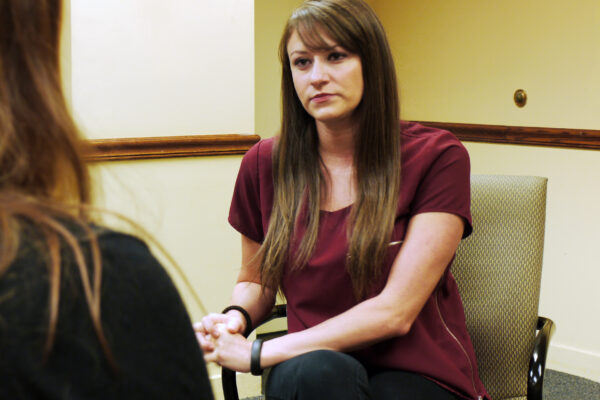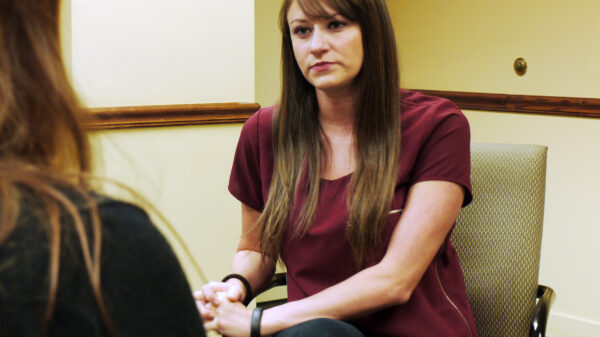In the complaints filed with the U.S. Department of Health and Human Services Office for Civil Rights and Illinois Department of Human Rights, the American Civil Liberties Union of Illinois charges that Mercy denied Ms. Jones access to critical health care information and services on the basis of her sex, placing her health at risk.
In late December 2015, Ms. Jones slipped on water and fell in her bathroom. The next morning, Ms. Jones began to suffer from sharp pains, cramping, and bleeding. Ms. Jones scheduled an appointment with a physician in the Mercy Hospital network. She told the office, the nurse and the physician that she was using a copper intra-uterine device (IUD), a non-hormonal method of birth control, and believed that it had become dislodged. This was the safest and most reliable form of birth control for Ms. Jones, who had suffered a TIA, or mini-stroke, when she was 20. Hormonal birth control could increase her risk of another stroke.
The Mercy doctor examined Ms. Jones and confirmed that her IUD had become dislodged and it needed to be removed. Rather than conduct the quick procedure that would have alleviated Ms. Jones’ pain and bleeding and prevented additional risks, the doctor declined to provide Ms. Jones the care she needed. After consulting others at Mercy, the doctor told Ms. Jones that her “hands were tied” by Mercy’s religious restrictions, which barred treatment involving a non-hormonal IUD, because its sole purpose was to prevent pregnancy. The doctor also said she could not refer Ms. Jones for care, because every health care provider in the network operated under the Catholic health care restrictions.
Ms. Jones was then told that she would have to wait an entire month to change her insurance network in order to obtain care from a provider that was not bound by these religious restrictions, but the doctor suggested that Ms. Jones should feel “lucky” since that process can often time take patients months. “I walked away from the doctor’s office feeling shocked and stigmatized,” said Ms. Jones in announcing the charges. “Hospitals and doctors’ offices should be places for healing and not judgment.”
“I felt singled out for using birth control for the purpose of preventing pregnancy.”
Mercy requires that all of its facilities and physicians abide by the Ethical and Religious Directives for Catholic Health Care Services (ERDs), written and enforced by the U.S. Conference of Catholic Bishops. The ERDs demand that all Catholic health care providers adopt the ERDs as policy and require adherence to them as a condition of medical privileges and employment. A broad prohibition against providing contraception-related services is just one of the many restrictions that the ERDs place on health care. According to the Mercy physician Ms. Jones saw, Mercy’s internal policy implementing this directive requires doctors to deny women with IUDs used to prevent pregnancy any treatment related to those IUDs, even when compliance requires turning women away like Ms. Jones—who come to Mercy bleeding, in pain, and in need of immediate care.
“We are concerned that the Ethical and Religious Directives for Catholic Health Care Services (ERDs) substitute the views of religious leaders for the needs of patients like Ms. Jones,” said Lorie Chaiten, Director of the Women’s and Reproductive Rights Project of the ACLU of Illinois. “We must put patients first.”
“When Illinois patients go into an exam room, they should not be discriminated against based on their health care provider’s religious beliefs,” added Chaiten. “Ms. Jones was bleeding and in pain and deserved to be cared for immediately.”
Learn more:
- Blog Post: I needed treatment, not judgement
- Put Patients First: Initiative to Stop the Use of Religion to Deny Health Care
- “Their Hands are Tied”: Dr. Debra Stulberg on Religious Restrictions on the Provision of Health Care
Stay Informed
Sign up to be the first to hear about how to take action.
By completing this form, I agree to receive occasional emails per the terms of the ACLU’s privacy statement.
By completing this form, I agree to receive occasional emails per the terms of the ACLU’s privacy statement.



